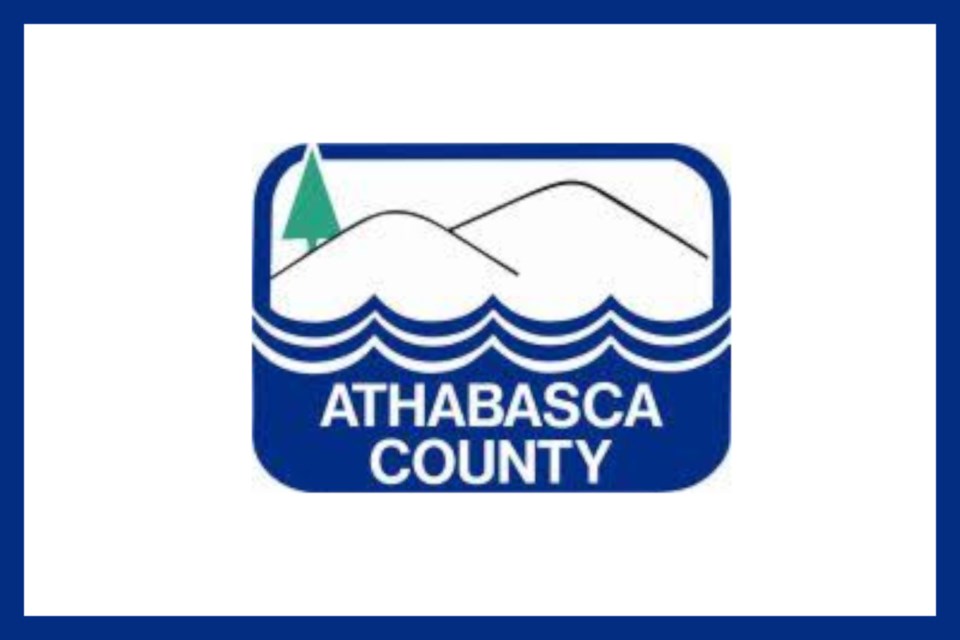ATHABASCA – Athabasca County is changing its policy on audio recording and livestreaming of council meetings just slightly, eliminating access to certain meetings where no legislative decisions are made.
The previous county council adopted Policy 1800 in December 2020 in the midst of the COVID-19 pandemic, as all public meetings were expected to be held remotely. With all but a few of the restrictions implemented by the province at that time now removed, council passed a motion at its March 8 meeting to revise the policy and bring it back to a future meeting.
At the March 31 regular county meeting, Coun. Tracy Holland argued there should be no amendments made to the policy and was joined by Coun. Gary Cromwell and Coun. Kelly Chamzuk in the final 6-3 vote to proceed with the suggested amendments from administration.
The original recommendation was to adopt changes that would see only regular council and public works meetings livestreamed, both audio and video, and made available on YouTube for the following week. This would do away with digital access to Municipal Planning Commission, Agriculture Services Board, Policy Review Committee meetings and any other body established by council.
Budget and Finance Committee meetings were originally on the chopping block as well but were brought back into the fold after some discussion and were included in the final motion to accept the changes proposed by administration.
Holland, who attended the meeting via Zoom, told council she had a list of people waiting to hear from her about issues with the audio feed, so they can resume observing meetings from the comfort of their homes.
“I asked about how they felt about dropping meetings and there was a whole lot of disappointment there for the citizens that I spoke to because they do like to be able to listen and keep on top of what's going on. And the reason why they're not here publicly, of course, is because our meetings are held during the game and when they're held during the day that it doesn't allow most people to take time off work to come and listen,” she said.
“With live streaming, it allows for more and more citizens to become part of that democratic process so that they're able to hear, understand what's happening and it gives them more information rather than just the brief minutes that do come out from these meetings.”
Coun. Natasha Kapitaniuk and Coun. Ashtin Anderson, however, were wary of the amount of time spent by administration on making sure the livestream was functioning properly during meetings, troubleshooting when required, and then converting to audio afterwards.
“Livestreaming meetings where decisions aren’t actually made legislatively is kind of redundant,” said Kapitaniuk. “I believe it’s a waste of admin time, it’s a waste for our IT department, and they’re not getting their work done when they’re taking care of the livestream.”
“I agree with Coun. Kapitaniuk on being respectful of administration’s time and the resources that it takes to livestream and to record all of these meetings,” said Anderson. “I absolutely agree that for transparency reasons council meetings and public works meetings where decisions can be made by council should be livestreamed and recorded and available to the public, and that the remainder of the meetings stay open to the public but do not have those resources allocated to them.”
Interim CAO Dawn Phillips noted recording secretary Leah Blair already had three screens to monitor during meetings, while she continues to take notes.
“It's too much for the recording secretary to do everything she's already doing as well as worrying about turning on and off the livestreaming,” she said, adding the hope is that IT will be able to join meetings in the future to handle issues as they arise.
She also noted the livestream is not viewed all that often, pointing out there were currently six viewers online and saying they were all staffers, and there are often fewer that access the recording afterwards.
Coun. Gary Cromwell said he also thought it would be useful to include the budget and finance meetings, as those are topics of great importance to ratepayers, even if decisions are brought back to council for final approval. Kapitaniuk agreed, and an amendment to the proposed policy changes was accepted by a 7-2 vote, with Anderson and Holland against.
Holland also took issue with the use of the word “may” as opposed to “will” in the opening line of the policy document regarding whether the county was indeed obligated to broadcast the meetings.
Phillips clarified the original intent of that language was to make sure it was clear meetings would not be delayed or postponed due to issues with the livestream.
Policy 8100, as amended, was passed by a vote of 6-3, so regular council meetings will continue to be livestreamed and recorded for future access, along with public works meetings and budget and finance meetings. All other county meetings are open to the public, but will not be livestreamed.



